How Online Learning is Changing the Education Landscape
The digital revolution has changed almost all aspects of our existence with education being fully impacted. The development of online education through virtual classrooms and self-paced courses along with AI tutoring systems makes learning more accessible while increasing flexibility and transforming fundamental learning principles.Online learning has moved from a specialized option to a major influence that transforms the delivery and global consumption of knowledge
Accessibility Like Never Before
Online learning stands out because it allows students to access education from any location worldwide. A stable internet connection allows students from remote villages and bustling cities to access world-class educators and prestigious institutions along with an extensive range of resources. Students who face geographical, financial, or physical barriers now have access to traditional education through these new opportunities.
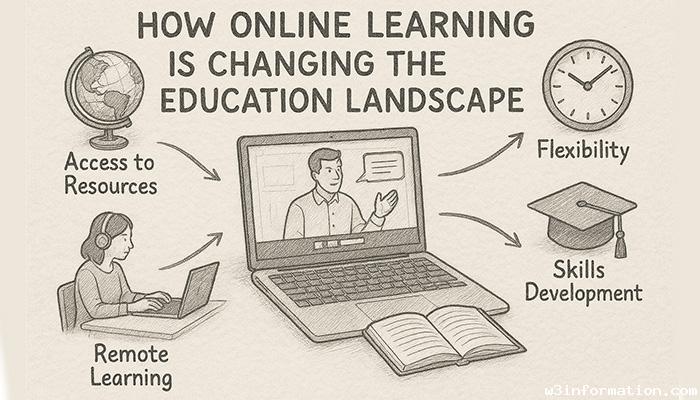
Personalized and Flexible Learning
Online learning platforms deliver personalized educational experiences unlike the uniform approach found in conventional classrooms. Students have the opportunity to control their learning speed by revisiting challenging topics and advancing quickly through subjects they understand easily. The adaptive nature of online learning enables students to control their educational paths while enhancing effectiveness and engagement.
A Diverse Range of Courses and Skills
Online education provides an enormous range of courses which include academic subjects and practical skills such as coding, photography, digital marketing and cooking. Online platforms such as Coursera, Udemy, and Khan Academy serve learners across various age groups and interests enabling them to discover new disciplines, transition their careers, or follow their personal interests.
Integration of Technology and Innovation
The use of AI tools and virtual reality alongside gamification methods and interactive simulations improves learning experiences. Through real-time feedback and smart recommendations alongside adaptive quizzes AI-powered platforms help enhance learning outcomes. Advanced learning tools transform complicated topics into understandable material while maintaining student interest.
Cost-Effective Education
The financial burden of online learning is significantly lower than that of traditional educational models. Students can access valuable knowledge through free and affordable educational services which helps them avoid accumulating substantial student debt. Numerous online platforms deliver recognized certificates and degrees that serve as cost-effective substitutes for traditional education.
Lifelong Learning Becomes a Norm
Online courses offer easy access to education which has shaped a culture where people engage continuously in learning. Online learning facilitates this movement by enabling individuals to adjust to evolving job markets which helps them remain relevant in their professions. Professionals continuously update their skills by participating in micro-courses along with certificates and webinars.
Challenges and the Road Ahead
Online learning comes with distinct benefits but also faces several significant challenges. The digital divide along with insufficient social interaction levels, motivation problems, and the need for consistent quality assurance require persistent monitoring. The evolution of technology alongside the rise of hybrid learning models enables the development of innovative solutions to address educational challenges.
Conclusion
Throughout the digital era we continue to advance and education technology integration will keep pushing limits to support learners worldwide. Online education has now arrived to shape the future of learning.Online learning has shifted from being an extension of traditional education into a robust educational system that evolves to enhance accessibility and relevance while improving learning efficiency.
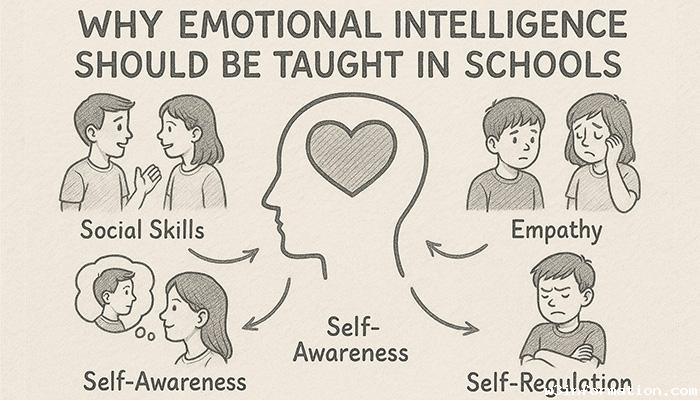 Why Emotional Intelligence Should Be Taught in Schools
Why Emotional Intelligence Should Be Taught in Schools
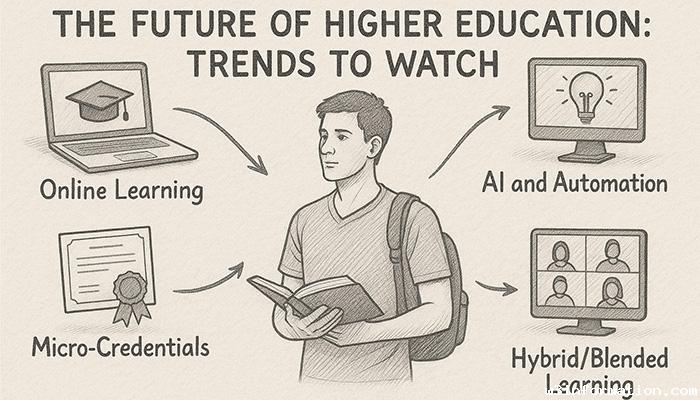 The Future of Higher Education: Trends to Watch
The Future of Higher Education: Trends to Watch
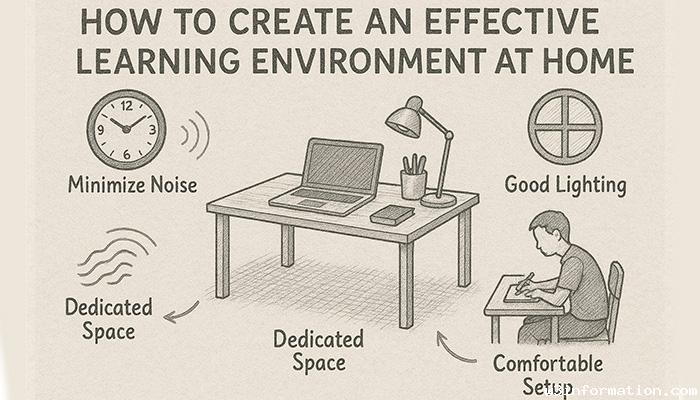 How to Create an Effective Learning Environment at Home
How to Create an Effective Learning Environment at Home
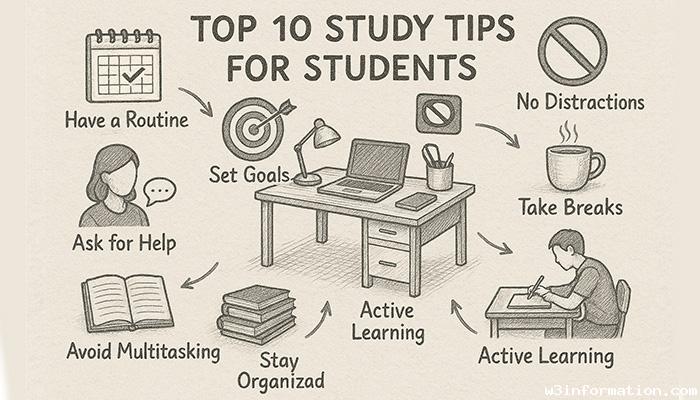 Top 10 Study Tips for Students
Top 10 Study Tips for Students
 How to create backend CRM using React JS
How to create backend CRM using React JS